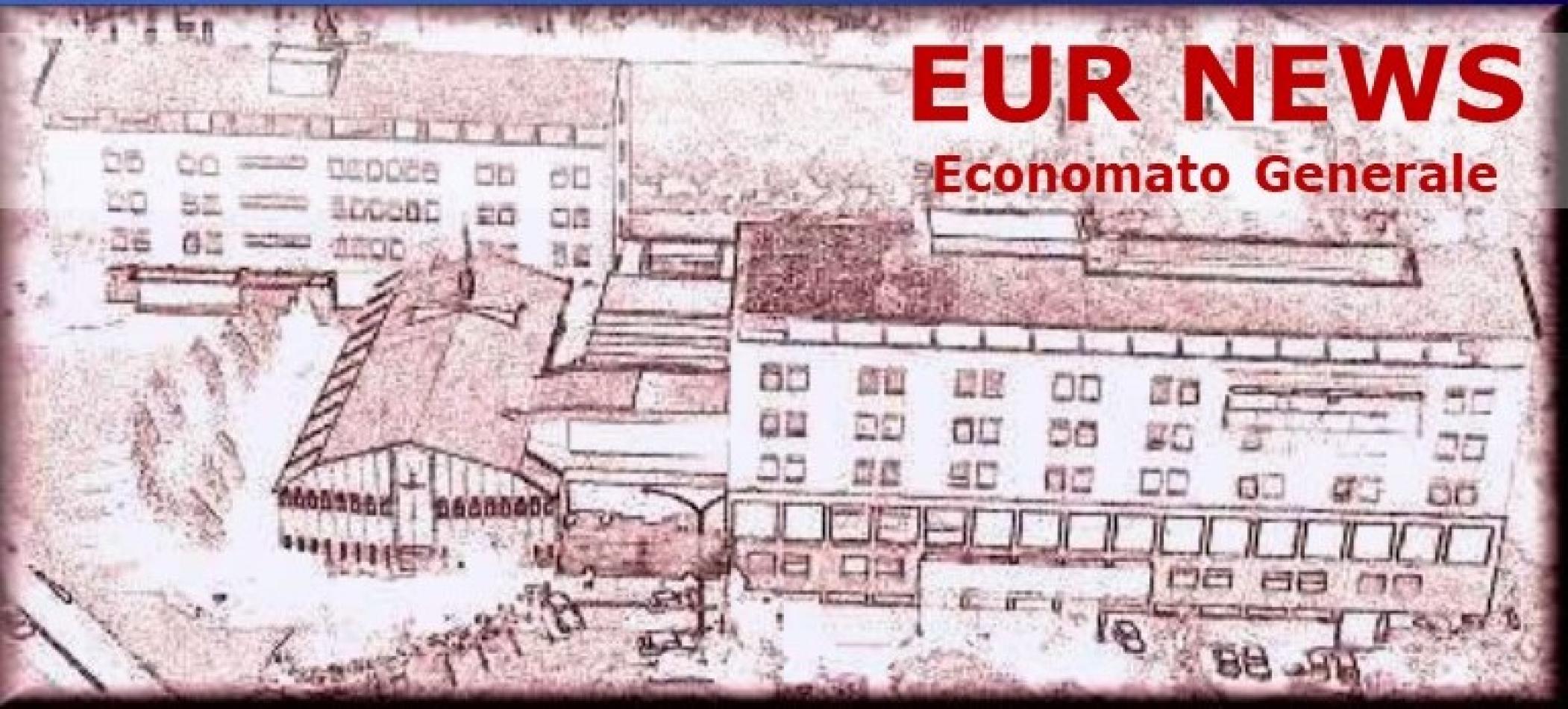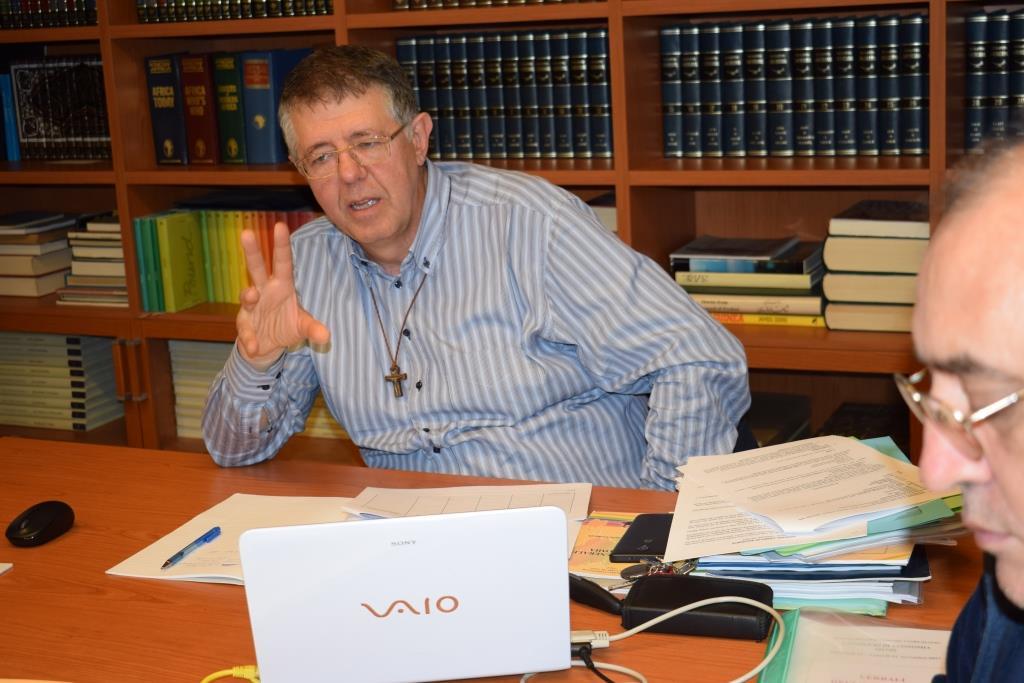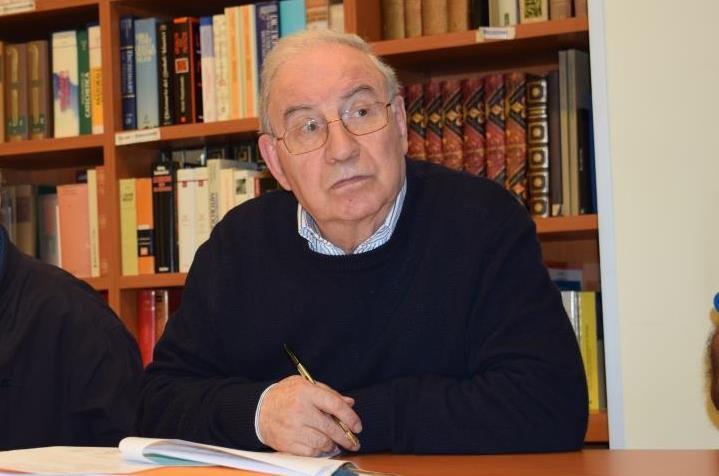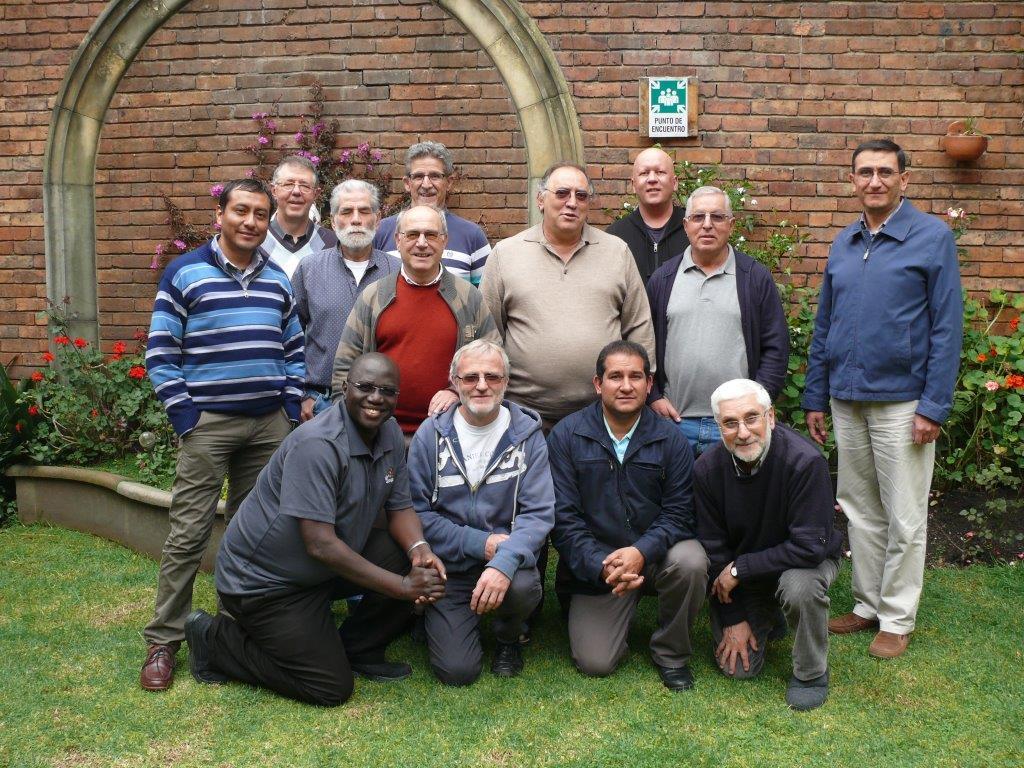Daniel Comboni
Comboni Missionaries
Institutional area
Other links
Newsletter
Newsletter from the General Treasury Office
Dear Confreres,
This EUR-News edition, intended to bring you an update on the decisions and situation after the October-November Consulta 2004, will reach you a bit late. The reason is that immediately after the Consulta we went to Coimbra (Portugal) to participate in the Continental Assembly of the European Treasurers. It was a very good meeting, with many positive features: the warm welcome, nice weather, fraternal gathering and fruitful sharing. The various topics we discussed have been further clarified. The Stable Patrimony, in particular, from a rather fuzzy initiative set against a back-ground of fear in the face of the future, is beginning to appear under a more positive and rational light and useful for steering the future towards an important and re-sponsible foundation. The individual and provincial responsibility has also taken up a good amount of our time when reflecting on the guidelines of the Chapter Acts 2003, n. 101-104, which invite us to be ever more at the service of the mission. The journey undertaken by the Institute concerning the Ratio Missionis was another topic that the Assembly discussed. The treasurers shared ideas and suggestions on how best to serve the mission through material means.
The most important topic discussed in the October-November Consulta 2004, as far as finances are concerned, was the approval of the Budget 2005.
Concerning the Scholasticates/CIF Fund and the General Sick Fund, the approved contributions requested from the Provinces/Delegations are the same as last year.
It was approved the daily allowance for the Scholasticates and CIF. It has been re-iterated that all the Scholasticates and CIF follow the same financing procedure: the agreed amount will be sent in three instalments to the provincial treasurer who will make it available to the formation house without any deduction.
It may be interesting to have a comparative picture of the amounts that the general administration has granted:
|
General Administration |
||||
|
|
||||
|
Scholasticate |
Currency |
Daily Allowance 2005 |
Yearly total for the Scholasticate |
|
|
Chicago |
USD |
30,00 |
€ 8.589,47 |
|
|
Elstree |
GBP |
15,00 |
€ 8.064,68 |
|
|
Innsbruck |
EUR |
13,00 |
€ 4.745,00 |
|
|
Kinshasa |
EUR |
11,00 |
€ 4.015,00 |
|
|
Lima |
USD |
9,00 |
€ 2.680,56 |
|
|
Nairobi (Schol.) |
USD |
15,00 |
€ 4.467,60 |
|
|
Pietermaritzburg |
EUR |
14,00 |
€ 5.110,00 |
|
|
Roma |
EUR |
18,00 |
€ 6.570,00 |
|
|
Sao Paulo |
USD |
13,00 |
€ 3.871,92 |
|
|
Bogota (CIF) |
USD |
13,00 |
€ 3.871,92 |
|
|
Nairobi (CIF) |
USD |
13,00 |
€ 3.871,92 |
|
|
Average |
|
|
€ 4.726,86 |
|
|
Budget for the whole year |
|
|
€ 894.496,12 |
|
|
Note: 1. The subsidy for Chicago is only to refund for the school expenses, budgeted at USD 200,000.00 for 2005. |
||||
The general administration’s extraordinary expenses for the year 2005 are mainly:
The subsidy to Poland, down this year to € 65.000,00. We stress the fact that last year‘s subsidy was € 100.000,00. This shows the effort that Poland is making in be-coming self-sufficient.
The subsidy to MISNA, € 50.000,00: we are determined to support this editorial means to make known the reality of the South of the world.
At the beginning of next year we shall print the updated Annuario Comboniano and will start the official running of the website comboni.org, which will become a means of communion and link for the Institute: we are anxiously waiting for it to be imple-mented.
We do not have yet the budget for the renovation of Casa Eur, but the plumbing problem, forty years after its construction, requires urgent attention.
The ordinary financial balance is showing signs of a possible crisis: in the past years the extraordinary expenses have always being counterbalanced by the income of the ordinary contributions sent for the expenses of the general administration, by the active interests and by various other income sources.
We are registering a tendency towards an increase in the expenses of the General Direction and a decrease in the contributions on account of the devaluation of the dollar and the decrease in the number of confreres eligible “for tax-levies”.
For 2005 we trust that the decrease in such sources of income may be compensated by an increase in inheritance-income more significantly than in the past years.
This year, too, the investments have suffered due to the worldwide economic insta-bility on the stock market and in the political scene. I am sharing with you observa-tions made by “HSBC Private Bank” concerning the future:
“Taking into account the deficit balance (preventive and commercial) of the United States and of the absence of reaction from the central bankers, the dollar is quoted at its lowest level when compared to all the other important monetary currencies, among which the Euro. This lowering has largely favoured the American investors whose gain profits in areas outside the dollar have been exceptional when converted into dollars (Note: It would have been the same for all the provinces that have the dollar as their currency, if they had left their deposits in Euro). The European inves-tors would of course gain considerably in a future upgrading of the value of the American dollar (though, personally, I do not believe this will happen soon).
For the year 2005 there are a number of meetings planned. Travelling and accommo-dation expenses for these meetings will weigh considerably on the general and provin-cial financial balance. They are: Provincial and delegation superiors in Egypt in Febru-ary – Comboni Bishops in Egypt in May – Continental assemblies and meetings of the various sectors – Mission promotion workshops – Ratio Missionis’ meetings and others.
Continental Assemblies for Finance:
Europe: it has already taken place at Coimbra on 22-27 November 2004, preceded by a “technical” meeting on 20-11-2004.
French-speaking Africa: Paris on 25-28 April 2005; technical meeting on 29-04-2005.
America: Bogotá on 22-26 August 2005; technical meeting on 18-20 August 2005. Due to the new appointments of provincials, the contact-persons for finance (the su-perior responsible for the Continent and the treasurer councillor), have still to be nominated. With the latter we shall work out the details for organising the assembly.
English-speaking Africa: No dates have been set yet. We are still waiting for the ap-pointment of the new superior responsible for finance in the sub-continent.
Visits to the provinces
We are dialoguing to organise our visit to the following provinces:
South Brazil: suggested by the Council for Finance - to be done before the Continen-tal Assembly in Bogotá;
Ecuador: suggested by the Council for Finance - to be done after the Continental As-sembly in Bogotá;
Egypt: suggested by the Delegation Treasurer;
Togo: suggested by the provincial council.
Provincial coordination and responsibility with regard to provincial projects and their administration.
During our continental European assembly we had a good sharing on the issue of fi-nancing projects and their significance at provincial level, especially in relation with our pastoral and ecclesial mission and our presence in a certain Country and in the lo-cal Church. The following points were underlined:
In the Missions:
+ There is a multiplication of small personal and community projects.
+ The superior’s signature is not always a warranty of a serious evaluation of the project.
+ It is preferable to have a provincial orientation in line with the evangelising work of the province, a coordination of the various local initiatives, a single provincial project incorporating the various project applications.
In Europe:
+ We find it difficult to get to know the real situation and the actual local needs.
+ We ask to be sent a presentation of the project that is clear and appealing, so that it can be submitted to sponsors and benefactors.
+ There always remain the need and obligation to give a report on its implementation and continuity.
+ There is the need for assurance that the project is being executed and who are the people responsible for it.
Proposals: which the provinces are free to decide whether to implement them or not.
- The mission province presents a “provincial project”, which incorporates under this one heading all the various project-applications of the different missions.
- The European (and Nap) provinces consider one or more projects, in total or in part, and animate the benefactors about it or about them.
- The province that has been helped has to present an annual update on what has been accomplished and what still remains to be done.
- Each province may decide on its own priorities.
- The general treasurer’s office may act as the coordinating team.
MERRY CHRISTMAS !!!




